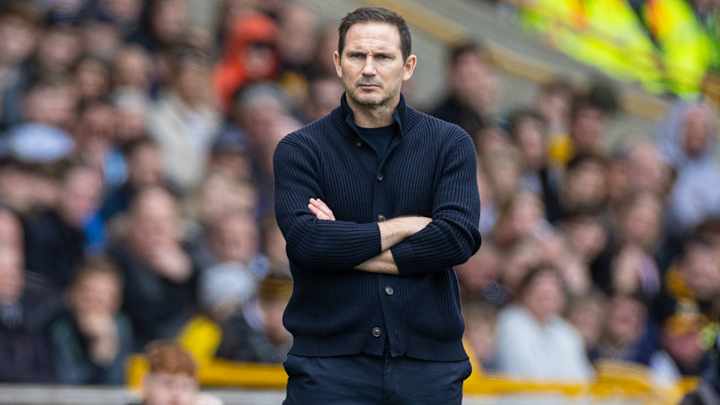Frank Lampard’s Odd Appointment As Chelsea Interim Manager Starts With a Dud

That was not, it’s fair to say, the start that Frank Lampard wanted to his second stint as Chelsea manager. It’s not just that his side lost 1–0 to Wolves, who are just four points off the relegation zone. It was the nature of the performance. Under Graham Potter, Chelsea had dominated games and failed to take its chances. At Molineux on Saturday, Chelsea was outfought and outplayed and didn’t even create the chances to miss.
“We needed more aggression,” Lampard said after the match. “We needed to be more competitive. That’s the base-line.” Which sounded a lot like the sort of blaming the players that undermined morale in his last stint in charge. As though conscious of that, Lampard rowed back, insisting he didn’t meaning “stinging criticism” by his comments.
“It’s a big task,” he went on. “We’re managing Chelsea Football Club. We’re not in the position we want to be in and there’s always a reason for that. I was never going to solve everything in one day.” But the truth is this seemed not merely not a step towards solving the problems, but a regression.
When Lampard was seen in the stands at Chelsea during Tuesday’s goalless draw against Liverpool, it seemed to have occurred to nobody that he might be about to be appointed interim manager. His first reign as Chelsea manager had, after all, ended amid general disillusionment after a run of five defeats in eight league games, with relations having soured with certain key players as well as the director Marina Granovskaia. He had been unable to resolve his side’s problems conceding goals on the counterattack and to set plays while the leakiest dressing room in the Premier League had begun to cast doubt on his general coaching ability. Lampard’s subsequent spell at Everton did little to dispel those doubts. Defeat at Wolves means he has now taken a single point form his last eight league games in charge.

And yet by the time the news was officially announced, Lampard’s appointment had come to seem entirely logical—and not just because it had been widely trailed for 24 hours. Owner Todd Boehly, after all, has presented himself as the great disruptor. What could be more disruptive to the usual patterns of English football than to sack the manager you appointed to replace the manager who had won the Champions League, and replace him with the manager who had been sacked and replaced by the manager who went on to win the Champions League?
On that level, the appointment of Lampard is farcical—and another example of how doors will open for former England players with a good media presence: Who else with his managerial record would be handed a crack at a Champions League quarterfinal? But it also has a certain logic. Once Potter had been ousted and Bruno Saltor had made clear he was not comfortable in the caretaker role, there was a need for a temporary manager.
To bring in a club legend who is not currently in a managerial role makes sense. Lampard remains hugely popular at Stamford Bridge from his playing days. He will galvanize fans, generate a sense of momentum. Boehly gets to advertise how in touch he is with the history of the club; this is a populist move. And Lampard, at least in his first season as Chelsea manager, did do a good job of integrating young talent such as Mason Mount, Tammy Abraham and Fikayo Tomori; he perhaps can start to bring through at least some of the rafts of promising youngsters Boehly has signed.
But with Chelsea so far adrift if the top four, the only games that really matter for the remainder of this season will come in the Champions League, beginning with next week’s quarterfinal first leg against Real Madrid. So the question comes down to whether Chelsea is more likely to win that tie with Potter or Lampard. Potter has never coached at this stage of the Champions League, but his side had been impressive in coming back from a first-leg deficit to beat Borussia Dortmund in the last 16. Lampard, meanwhile, has only ever taken charge of one tie in the knockout stage of the Champions league, a 7–1 aggregate defeat to Bayern Munich. It may be that Lampard provides a boost to morale, but Potter is surely the more reliable tactician.
There is, of course, a tantalizing if improbable possibility, which is that Lampard does well, as Ole Gunnar Solskjaer did after initially being appointed in similar circumstances by Manchester United after the departure of Jose Mourinho (albeit Solskjaer had not had a failed managerial stint at the club), and ends up being given the job on a more permanent basis. And while that may appeal to the Great Disruptor—certainly nobody would have seen it coming—it would feel like a step backward.
